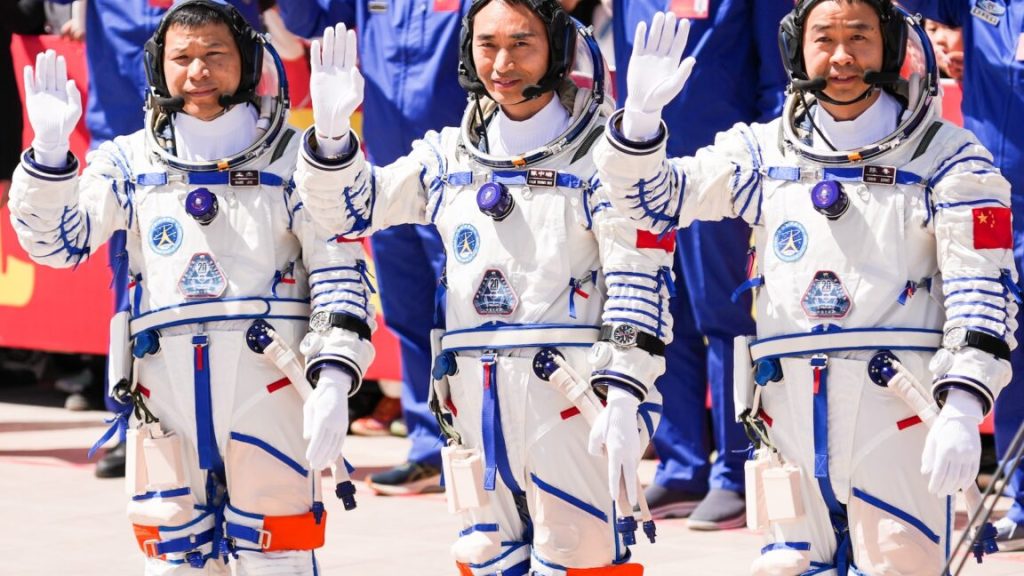Three Chinese astronauts were due to depart the Tiangong space station, reenter the atmosphere, and land in the remote desert of Inner Mongolia on Wednesday. Instead, officials ordered the crew to remain at the station while engineers investigate a potential problem with their landing craft.
The China Manned Space Agency, run by the country’s military, announced the change late Tuesday in a brief statement posted to Weibo, the Chinese social media platform.
“The Shenzhou 20 manned spacecraft is suspected of being impacted by small space debris,” the statement said. “Impact analysis and risk assessment are underway. To ensure the safety and health of the astronauts and the complete success of the mission, it has been decided that the Shenzhou 20 return mission, originally scheduled for November 5, will be postponed.”
What we know
The Shenzhou 20 astronauts arrived at the Tiangong station in April. Their replacements on the Shenzhou 21 mission docked with Tiangong on Friday, temporarily raising the station’s crew size to six people. After several days of joint operations, the six astronauts held a handover ceremony early Tuesday to formally transfer command of the outpost to the new crew.
Less than 24 hours later, Chinese officials decided to call off Shenzhou 20’s departure from Tiangong. The statement from the China Manned Space Agency did not say what part of the Shenzhou 20 spacecraft may have been damaged, what evidence led engineers to suspect space debris was the culprit, or how long Shenzhou 20’s departure might be postponed.
This view shows a Shenzhou spacecraft departing the Tiangong space station in 2023.
Credit:
China Manned Space Agency
The ship has three sections, with a landing capsule positioned between crew living quarters and a power and propulsion module. The modules separate from one another before reentry, and the return craft heads for a parachute-assisted landing while the other elements burn up during atmospheric reentry.


